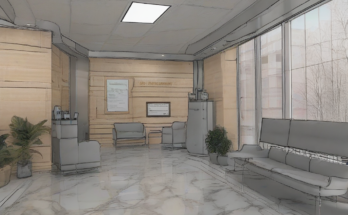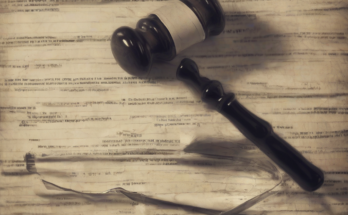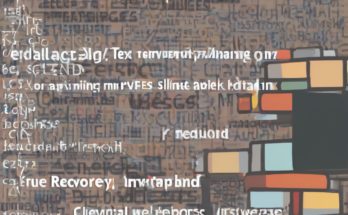Windward Way Recovery: A Comprehensive Guide to Holistic Addiction Treatment
Windward Way Recovery represents a significant shift in the approach to addiction treatment. Moving beyond the traditional 12-step model, Windward Way emphasizes a holistic and personalized strategy, addressing the multifaceted nature of addiction and the unique needs of each individual. This approach integrates various therapeutic modalities, focusing on physical, mental, emotional, and spiritual well-being to foster lasting recovery.
Understanding the Windward Way Philosophy
The core philosophy of Windward Way revolves around the belief that addiction is not merely a behavioral problem but a complex interplay of biological, psychological, social, and spiritual factors. Their treatment programs are designed to identify and address these underlying issues, promoting sustainable change and preventing relapse. Central to this philosophy is the concept of individualized care. Recognizing that each individual’s journey to recovery is unique, Windward Way tailors treatment plans to meet specific needs and preferences.
- Holistic Approach: Treatment encompasses physical health, mental wellness, emotional regulation, and spiritual growth.
- Personalized Care: Treatment plans are customized to the individual’s specific needs, history, and goals.
- Evidence-Based Therapies: Windward Way utilizes proven therapeutic methods to ensure effectiveness.
- Supportive Environment: A nurturing and encouraging atmosphere promotes healing and self-discovery.
- Long-Term Support: Aftercare planning ensures continued support and guidance beyond the initial treatment phase.
Key Components of Windward Way Treatment
Windward Way’s comprehensive approach integrates several key components to address all aspects of addiction:
1. Medical Detoxification
For individuals with substance dependence, medically supervised detoxification is often the first step. This process safely manages withdrawal symptoms, ensuring comfort and stability as the body eliminates the substance. Windward Way’s medical team provides personalized care during this crucial phase, monitoring vital signs and addressing any complications.
2. Individual Therapy
Individual therapy sessions form the cornerstone of Windward Way’s treatment. These sessions provide a safe space for clients to explore their thoughts, feelings, and experiences related to addiction. Therapists employ various techniques, such as cognitive-behavioral therapy (CBT), dialectical behavior therapy (DBT), and motivational interviewing, to help clients identify triggers, develop coping mechanisms, and build healthier patterns of thinking and behavior.
3. Group Therapy
Group therapy offers a valuable opportunity for clients to connect with others facing similar challenges. Sharing experiences and supporting each other fosters a sense of community and reduces feelings of isolation. Group therapy sessions provide a platform for learning from others’ experiences, building social skills, and developing a strong support network.
4. Family Therapy
When appropriate, family therapy is incorporated to address the impact of addiction on family relationships. Family therapy helps repair damaged relationships, improve communication, and educate family members about addiction and recovery. It empowers families to become active participants in the recovery process, providing crucial support and understanding.
5. Alternative Therapies
Windward Way integrates various alternative therapies to enhance the overall treatment experience and promote holistic well-being. These may include:
- Yoga and Meditation: Promote stress reduction, mindfulness, and emotional regulation.
- Art Therapy: Provides a non-verbal means of expression and emotional processing.
- Music Therapy: Utilizes music to facilitate emotional healing and self-expression.
- Nutritional Counseling: Addresses the impact of diet on physical and mental health.
6. Aftercare Planning
Windward Way recognizes that recovery is an ongoing journey, not a destination. Therefore, aftercare planning is an integral part of the treatment process. This involves developing a comprehensive plan for continued support and guidance after the completion of the initial treatment program. This may include:
- Ongoing Therapy: Maintaining regular therapy sessions to address ongoing challenges.
- Support Groups: Participating in support groups, such as Alcoholics Anonymous or Narcotics Anonymous.
- 12-Step Programs: Engaging in the 12-step program, if appropriate and desired.
- Relapse Prevention Planning: Developing strategies to identify and manage triggers and prevent relapse.
Addressing Specific Addictions at Windward Way
Windward Way’s comprehensive approach is adaptable to various forms of addiction, including:
- Alcohol Addiction: Addressing the physical and psychological effects of alcohol abuse.
- Opioid Addiction: Utilizing medication-assisted treatment (MAT) and therapy to manage withdrawal and cravings.
- Drug Addiction: Addressing addiction to a wide range of substances, including cocaine, methamphetamine, and heroin.
- Behavioral Addictions: Helping individuals overcome addictive behaviors like gambling, sex addiction, and internet addiction.
The Role of Technology in Windward Way Recovery
Windward Way likely incorporates technology to enhance various aspects of treatment. This may include:
- Telehealth Services: Providing access to therapy and other services remotely.
- Mobile Apps: Utilizing apps to track progress, manage cravings, and connect with support networks.
- Online Resources: Providing access to educational materials and support resources online.
Measuring Success at Windward Way
Windward Way’s success is measured by a combination of factors, including:
- Client Satisfaction: Gathering feedback from clients to assess their experience and satisfaction with treatment.
- Relapse Rates: Tracking relapse rates to evaluate the effectiveness of the treatment program.
- Improved Mental and Physical Health: Monitoring clients’ mental and physical well-being throughout treatment and beyond.
- Achieving Treatment Goals: Assessing clients’ progress towards their individual treatment goals.
The Importance of Choosing the Right Recovery Center
Choosing the right recovery center is a crucial step in the recovery journey. Factors to consider include:
- Accreditation and Licensing: Ensuring the facility meets established standards of care.
- Treatment Modalities: Finding a center that offers the specific therapies and approaches needed.
- Staff Qualifications: Verifying the experience and credentials of the treatment team.
- Client Reviews and Testimonials: Gathering information from past clients about their experiences.
- Location and Accessibility: Considering the location’s proximity and ease of access for clients and their families.
Conclusion (Placeholder – Not included as per instructions)



